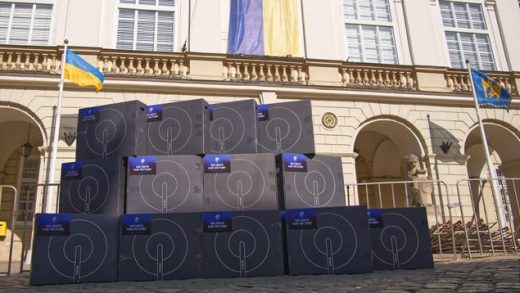In a lawsuit filed at a U.S. district court early January 2022, video game giant Activision targeted German company EngineOwning UG, plus a number of individuals associated with the cheat-making and distribution business.
With a flood of similar cases, some filed by competitor Bungie, providing a template, Activision’s complaint alleged, among other things, that the defendants trafficked in circumvention devices, in violation of the DMCA’s anti-circumvention provision.
Warring Parties Come Out Fighting
For more than a year, the EngineOwning defendants played to their strengths, characterizing Activision as a fifty billion dollar corporate bully targeting a handful of under-resourced, overseas defendants, with little means of fighting back. Yet fight back they did.
After retaining counsel in the United States, defendants including Valentin Rick, Alex Kleeman, Bennet Huch, Leon Frisch, Leon Schlender, Leonard Bugla, Marc-Alexander Richts, Pascal Claβen, and Remo Löffler, filed a motion to dismiss. Activision’s amended complaint had added new claims under the Computer Fraud and Abuse Act, and two further counts of racketeering (RICO). In general, however, none of the defendants relished the idea of visiting the U.S.
A month later, two of the defendants broke ranks and settled with Activision. Court records indicate that one settled for $2m and the other for around half that, but money wasn’t the only thing on Activision’s mind. As always, information can also prove helpful.
Defendants’ Odds of a Win Take a Nose Dive
Activision’s response to the motion to dismiss was aggressive, to put it mildly. Armed with what appeared to be freshly-obtained records of EngineOwning’s internal communications, the court heard how the defendants “routinely trade detailed instructions on how best to illegally launder” their shared profits, while engaging in “fraudulent tax-dodging schemes.”
Also laid bare were allegations of lavish overseas spending, including weeks spent in the presidential suite of a Zurich hotel, and alleged pondering over whether to pay a defense lawyer or spend 10K on cocaine instead.
With the lawsuit expanding to more than 25 defendants, communication between the EngineOwning defendants and their U.S. attorneys ground to a halt; they subsequently received permission from the court to withdraw from the case. In July 2023, four of the defendants indicated they would defend themselves moving forward, but that was the last the case heard of them.
Activision Moves For Default Judgment
In an order dated Wednesday granting Activision’s motion for default judgment, District Judge Michael W. Fitzgerald recalled the facts of the case as alleged by Activision. Defendant Valentin Rick is described as the founder of EO (EngineOwning) and the “mastermind behind the venture.”
Together with Rick, co-creator/co-founder Leon Frisch is responsible for developing, marketing, distributing, and selling the cheats. The bulk of the rest form EO’s core team, with the remainder described as having site moderation, tech support, and reselling responsibilities.
‘$14.5m in Damages Sounds Reasonable’
Satisfied that Activision has indeed suffered lost profits and goodwill at the hands of the defendants, Judge Fitzgerald notes that all Activision claims pass muster.
“The Court therefore concludes that Plaintiff sufficiently alleges claims for violation of the DMCA, violation of the CFAA, violation of RICO, and intentional interference with contract,” his order reads.
“Here, Plaintiff seeks a total of $14,465,600 in statutory damages. Ordinarily, such a large sum of money at stake would weigh in favor of Defendants. But the Court has ‘wide discretion in determining the amount of statutory damages to be awarded.’ Here, the Court deems the amount of requested damages reasonable, given that Plaintiff alleges that Defendants have acted willfully.”
Finding that the defendants’ failure to appear is unlikely to be due to “excusable neglect”, the Judge granted a permanent injunction, which includes the transfer of the engineowning.to domain to Activision.
For violations of the DMCA’s anti-circumvention provision (17 U.S.C. § 1203(c)(3)(A)), Activision sought the minimum statutory damages of $200 per violation multiplied by the estimated number of downloads of the cheating software in the United States (72,328).
Activision asked for the defendants to be held jointly and severally liable for damages totaling $14,465,600 plus $292,912 in attorneys fees; in the context, the Judge found the request reasonable.

In the meantime, it’s business as usual at EngineOwning, but for how long is unknown.
Having disengaged from the lawsuit last year, it seems unlikely that a new spirit of cooperation will suddenly become a feature of events moving forward.
Given the history, if there are rules to be followed, finding a way around them to gain an unfair advantage might be the most logical outcome.

Activision’s Motion for Entry of Default and the Court’s Default Judgment are available here and here (pdf)
From: TF, for the latest news on copyright battles, piracy and more.
Source : Activision Wins $14.5m Judgment After EngineOwning Cheat Makers Bailed Out














